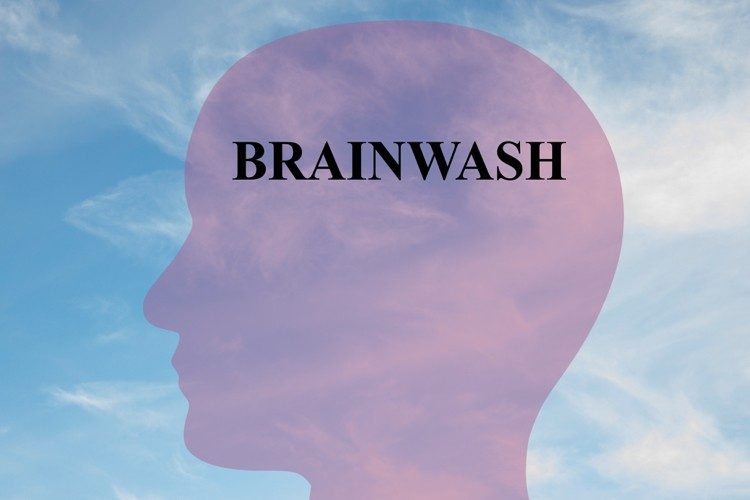
If you’re white, you belong in an “accountability” group to police and eradicate your racism.
This message is part of the Washington Post’s “The New Normal” video series, hosted by Postie Nicole Ellis, who spoke with three others about the “tough job” white people have ahead.
Remarkably, the quartet’s members agree that whites just don’t get it. They must segregate and huddle, then learn they can’t look at everything through a “white lens.” Only then can they rewire their brains and put an end to their inbred racism.
Back in the day, Red China had words for these encounters: struggle sessions. One may assume that whites who struggle successfully — meaning arrive at the same conclusions as those in the The New Normal — will become Good Whites. The ones who fail will remain Bad Whites.
They, of course, must continue struggling.
Time for an “Awakening”
The Post Millennial helpfully provided a detailed synopsis of the tape. Its reporter watched it so you don’t have to.
The show opens with Ellis’ intoning that the self-inflicted death of drug addict George Floyd was the “first time that white people were becoming aware of their whiteness” and the “systemic ways that white supremacy affects all of us.”
In fact, “white supremacy” doesn’t affect “all of us;” in the mainstream, it’s a figment of the leftist imagination. That truth aside, another individual, Resmaa Menakem, who peddles an ideological snake-oil called “somatic abolitionism,” offered the usual hokum about “structural racism.”
A reputed expert in trauma among blacks, Menakem claimed that “there were thousands of George Floyds before” the lifelong criminal died after he overdosed on fentanyl, having first resisted arrest.
For the record, Menakem’s website explains that “nearly all of our bodies … are infected by the virus of white-body supremacy.” That virus “was created by human beings in a laboratory — the Virginia Assembly, in 1691 — then let loose upon our continent.”
But back to the video.
Rebecca Toporek, associate professor in the Department of Counseling at San Francisco State University, said events like Floyd’s death make white people — only the Good Ones, though — “get aroused” and “get upset.”
“There’s like an awakening that happens,” but “what they do with it is really the next piece of it.”
Ellis chimed in that “understanding your whiteness is integral to becoming self-aware as a white person.”
The video goes on to show interviews and clips with white people who are on the way to “becoming self-aware” as white people, and internalizing those values of antiracist practice. A woman from Oklahoma decries her home town for having whiteness as the “default.” She says that she’s “really realizing how deeply rooted racism is into, like, [her] every day thought process. No matter how much you work on that there’s still almost even more work to be done.”
Toporek explains that “exploring white racial identity” is in fact “a lifelong process.”
“Part of the structure of racism … is to keep us from recognizing that racism is part of our daily lives.” Toporek says.“So it’s a longer term process of looking at your understanding of yourself in the world, both historically but also contextually. Also the family you live in, the community you live in, and what role whiteness plays in that.”
That’s where the struggle sessions begin.
Said Menakem: “White people need to start getting together specifically around race” for “one, two, three, four, five years.” That way, “you end up with a community that is aligned with each other.”
Hostess Ellis then spoke to Ilyse Kennedy, who says her whites-only struggle group is “unpacking wrong things they’ve been taught in history class.” She, too, had a tough job. She had to “unpack and reorganize everything [she’d] learned because it was through a white lens.”
Kennedy — who might be related to the Hyannis Kennedys given what appears to be her marginal IQ — thinks whites need a “period of deep shame for being white and for acknowledging the harm that our ancestors have caused.”
Said Kennedy:
We can’t ask people of color to hold our hands through the shame piece. That needs to happen with other white people.
Message: Only after “one, two, three, four, five years” of struggle sessions can whites have “sustained and meaningful relationships with people of color.”
And even then, only Good Whites need apply. Bad Whites must, again, continue struggling.
H/T: The Daily Caller




